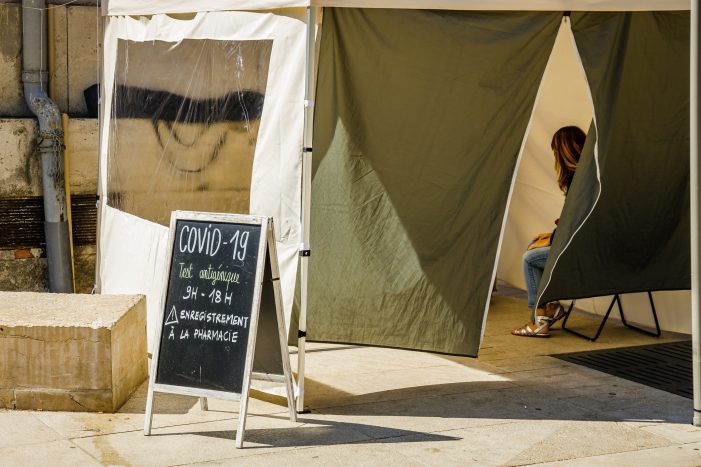
The U.S. Department of Health and Human Services Office of Inspector General has issued a warning to the public about fraudulent schemes and scams related to COVID-19 services and testing that involve telemarketing calls, text messages, social media platforms, and door-to-door visits.1
At the outset of the SARS-CoV-2 pandemic, there was a proliferation of fraudulent schemes related to testing for COVID disease that capitalized on the fear and panic of people wanting to know if they were or were not infected. The spread of the Omicron variant of the SARS-CoV-2 virus has created an increased demand for SARS-CoV-2 testing and, consequently, also created opportunities for scammers to create pop-up testing sites operated by scammers.2
These scammers have been collecting people’s personal information, providing invalid SARS-CoV-2 test results, and charging for wrongful medical bills, including overpriced at-home tests.3
COVID Testing Scammers Set Up in Florida, Texas and New York
Sarasota Police Department in Florida received complaints of individuals posing as staff and offering fake SARS-CoV-2 tests at a drive-through pop-up site outside the Ed Smith Stadium in Sarasota, Florida. Inside the stadium was a legitimately operated testing site operated by Real Diagnostics. Patients at the fake pop-up drive-through outside the stadium were asked to fill out their personal information on a website run by Oak Crest Laboratory Services. Real Diagnostics told police that it has no ties to Oak Crest Laboratory Services.
Real Diagnostics said that people waiting in line for SARS-CoV-2 testing should have been filling out their information on paper that had the Real Diagnostics logo on the page. The company said it would find a better way for people to identify their staff.4
Dan Parsons, president of Better Business Bureau of Metropolitan Houston & South Texas said:
Signs on the freeway ‘COVID Tests, come on in.’ You know who is behind this? Some guy who just set up a tent. We’ve actually seen examples of that where they literally go in, take your swab, and throw it away in the garbage.5
In New York, the state’s Attorney General, Letitia James, has filed 179 complaints and opened investigations into companies that are charging for SARS-CoV-2 testing. Companies have been warned for providing misleading information and test result times.6
COVID-related fraud has cost the American people a lot of money. The Federal Trade Commission (FTC) has received over 650,000 reports of COVID-related fraud, which has cost more than $636 million.7
Relaxed SARS-CoV-2 Testing and Lab Regulations Have Facilitated Fraudulent Activities
During the COVID pandemic, the federal government made provisions that made it easy for providers to conduct point-of-care COVID testing services. This was implemented by the way of the U.S. Centers for Medicare and Medicaid Services (CMS) that allowed sites that offer point-of-care tests, such as rapid antigen tests that provide immediate results, to seek a Clinical Laboratory Improvement Amendments (CLIA) certificate of waiver. Pop-up testing sites are allowed to test and report results as long as they applied for a waiver.8
Illinois Attorney General Kwame Raoul said:
It is important for people to know that these sites are not licensed or regulated by a government agency.9
Richard Scanlan, PhD, a professor of pathology and laboratory medicine at Oregon Health and Science University added:
There are insatiable demands for testing and a lot of money floating around. Undoubtedly, people see that as an opportunity.10
Relaxed regulations for laboratories have also led to exploitation. Many testing sites have partnered with new or existing laboratories. The laboratories then bill private insurers or a federal fund for uninsured patients. Since laboratories are compensated per test, it has created an incentive for the laboratory to conduct more testing.11
Laboratory owners also can take advantage of a regulatory loophole that allows laboratories to register, test and bill before inspectors complete a CLIA certificate survey. Dr. Scanlan states:
You can apply for a CLIA certificate and then start testing before anybody ever walks into the laboratory. And that’s the sort of the loophole that these people are exploiting.” He further states that, “The loophole is clearly a gap that unscrupulous operators could take advantage of, swoop in quickly, scoop up a bunch of money from Medicare and hit the road before anybody’s the wiser.12
Click here to view References:
No comments:
Post a Comment